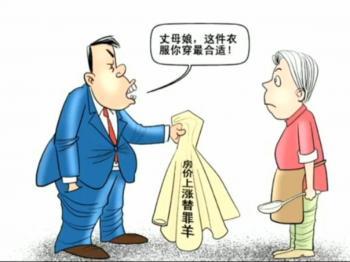“China’s average annual wage is less than 15 percent of the world average, ranking 158th in the world,” said Liu Zhirong, independent Chinese scholar and author of “WWR,” during an interview with Radio Free Asia (RFA).
His research showed that the lowest average annual income of the 183 countries and regions in the world is approximately US$6,078, while China’s is only US$896.
Liu relied on official information in compiling the report, such as statistics from the World Bank, the International Monetary Fund, and national government offices, including those from the labor departments in many countries. He told RFA. “If the information were based on the feelings of the common [Chinese] people, I’m afraid the result of this analysis would be even worse.”
Su Ming, a former professor at Peking University now living in Canada, said the information is reliable. In 2008, he said, the Web site of the State Department of the Chinese regime was hacked and inside information was revealed.
“At that time, 230 million Chinese were living on an average annual income of US$44,” Su said. “The wage standard last set by the United Nations was US$1 per person per day. This means that the number of people in China who were living below the poverty line was at least 600 million to 700 million.”
Independent commentator, Dr. Cheng Xiaonong, who currently lives in the United States, believes that if the unemployed people in the cities as well as young collage graduates earning low incomes were also counted, the number would increase to 800 million to 900 million.
The Chinese communist officials are working to make sure their own wages meet international standards while ignoring the wages of the common people, Liu commented in the “WWR” report.
Protecting the Interests of the Elite
Dr. Cheng said: “’WWR’ exposes a basic problem. It is that China’s so-called development completely ignores social justice. It favors or tends to protect the interests of an elite group.”
Mr. Liu asserts that what the Chinese people want is simply to be treated justly. “[Those] who work hard [should] earn more, but what’s happening now? Many laborers in China, especially some migrant and rural workers, perform extremely hard labor, yet their wages are very low.”
On the other hand, the wages of state civil servants and employees of state-owned companies and monopolies increase at an alarming rate. Moreover, these workers also get generous benefits while there is no social security system to maintain the low-income class, Cheng said.
China’s fiscal revenues increased 30 times over the past 20 years, with an annual growth rate of 19.5 percent—far greater than the GDP growth rate. But the amount of this money spent on education and public health is small compared to other developed countries.
According to the China News Web site, the expenditures for education in China are 2.6 percent of the GDP, half the international average. Medical and health expenditures are approximately 4 percent compared to 15 percent in the United States, Germany, Britain, and France.
The “WWR” report also noted that the large proportion of low-income earners leads to a large segment of the population having insufficient purchasing ability, thus making it hard for China to sustain any lasting financial prosperity.
“If 80 percent to 90 percent of the population lives below the poverty line, the country’s development policy apparently has serious problems. That is, its development policy has not been created for the interests of the people, but for the interests of elite groups,” Dr. Cheng said.
Watch the original Chinese video .

Friends Read Free